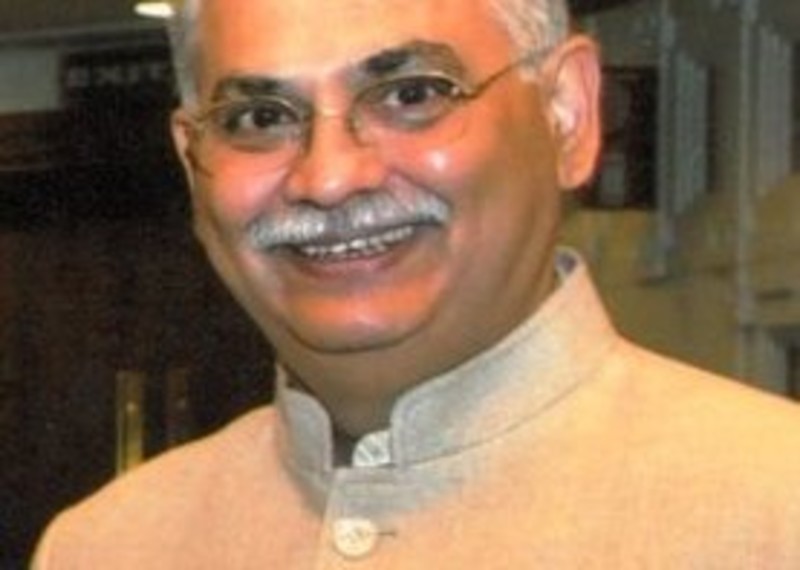
Minar Pimple, Amnesty International’s new Senior Director for Global Operations, first got involved in the fight for human rights when, as a child living in India, he experienced the consequences of social discrimination due to the caste system.
Since his young days, he has worked with many organizations to try and make a difference for those most marginalized and excluded.
These include YUVA (Youth for Unity and Voluntary Action), an Indian organization which he founded and led for 20 years, Oxfam India of which he is a Founder Chair and PDHRE where he was Chief Executive and led Human Rights Cities programme in joint collaboration with UNDP. More recently, he was Regional Director of the UN Millennium Campaign for Asia Pacific,
He now joins Amnesty International to deliver the organization’s ambitious plan to set up offices across the globe. His ambition: to work side-by-side with activists to change the world for the better.
Here, he shares his vision for Amnesty International’s future.
How do you feel about joining Amnesty International?I’m very excited. I’m joining Amnesty International at a very opportune and challenging time.
It’s opportune because this organization is moving closer to the ground, which is something I passionately believe in and challenging because all change is difficult.
What is your job about?My job is to deliver the “moving closer to the ground” strategy, which is about setting up regional offices with integrated work strategy. In the next two and a half years we expect to have nine offices set up across the globe, with teams working together to help those who have suffered or can potentially suffer human rights abuses.
The ultimate goal, whatever way we do it, is to be better and do things better for enhancing the human rights impact of our work.
Why are you so excited about the changes?I believe that if Amnesty International wants to remain relevant and effective, moving closer to the ground is the only viable option going forward. That’s something I felt before joining the organization, and I am excited now to be part of that change.
The action is on the ground, with a lot of social mobilization taking place. So being there and being relevant in the lives of men and women fighting for change is something that is mandatory and demanded of us.
That is what we are here for: to defend and protect the rights of the men, women and children who are deeply affected by the abuses that are taking place around the world. By being closer to them we will be able to do a better job.
How can Amnesty International better help people by being closer to them?From many of my different roles in the past three decades mostly working with grassroots communities and with social movements, I have observed that when you are closer to where the abuses are taking place, you have a greater ability to respond faster, to take actions that are more relevant because you are thinking from a particular socio political context and you know all the actors that can be mobilised.
Also because you are located closer, you can coordinate your actions with other partners so you don’t end up repeating what someone else is doing, you complement and support what others are doing. All those dynamics are much more easily manageable and easily understood if you are located in that cultural and political context within the regions. Several of the organizations I mentioned above have gone through partly similar changes, and it is interesting to be aware both of the parallels and the contrasts.
What are your plans for the next few months?I have set some very ambitious targets for myself for the next three to four months. I want to deliver on several important things: find high quality people to lead our work in regional offices, ensure the systems and processes are in place so they can work effectively, and look at the way people work together to deliver on integrated work plans.
What inspired you to start working for human rights?I have been involved in human rights since I was a teenager in India. I didn’t suffer from economic deprivation, but being born in one of the lower castes, just one above the untouchables – we had lower social status and low education leading to my early experiences social discrimination.
When I was a child we moved from a small village to Mumbai for better education and during my first week in 7th grade at school, the English teacher asked me for the meaning of the word “money”. I didn’t know what that word meant and in my language it sounds very much like the word we use for “kitten” so when I said that all the class laughed at me. Right then I decided that improving my English would be my challenge which I took seriously. I believe challenges are there to overcome them and that his been my guiding philosophy.
What is your vision for Amnesty International?My vision is for Amnesty International to be a vibrant and responsive organization, a global movement focused on people and made up by people who commit their time, money, intellect, and passion to create a world of justice and dignity for every man, woman and child.
As human beings the only reason we exist is to change the world for the better and that’s why we work here. Everything else is just mechanics, having a good process leading to good results in terms of human rights impact in the real lives of real people is what matters.

